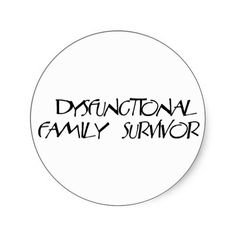
A DrHurd.com reader comments:
There’s a big difference between unconditional love and unconditional approval. That seems to be lost in much of the discussion surrounding our feelings about or toward others these days.
Many people falsely believe that if they love someone, they must unfailingly support, finance, and foster whatever they have chosen to do. But there’s a point where reality must intervene:
The reality is that I can love my child unconditionally, meaning I will always be there for him or her and willing to help them do right and progress in their life. If, however, they choose to waste their lives, do wrong, harm others, etc., I do not have to continue to fund, support, and/or approve of their choices.
Sometimes people do need a little “tough love.” A child can grow up happy and well-adjusted knowing that his parents had rational, reasonable boundaries for the behaviors they will support, but that they will always be there to love him.
Dr. Hurd’s reply:
You make an interesting distinction here, an important one in resolving confusion over this issue.
Love and approval are not the same thing. You can love someone, but not approve of what they do. You can also disapprove of what a person allows him- or herself to become – a drug addict, an alcoholic, a criminal, whatever.
As Ayn Rand wrote, man is a being of self-made soul. Your tiny child is too young to be much of a self-made anything. However, as the child grows into adulthood, the self-made soul is there.
Some parents take their grown child’s future attitudes and beliefs personally. “If he turned out this way, what does it say about me?” Interestingly, parents with multiple children often won’t credit themselves for how well a sibling turned out. For example, I’ll ask, “If your upbringing was so bad for John, and he turned out badly, then how did that same upbringing result in a completely different outcome for his brother?” Of course there’s no answer, because this question exposes the mistaken belief that parents are completely responsible for how their children turn out—only when it’s bad.
Man is a being of self-made soul. In today’s sophisticated society, young adults and adults have numerous choices about attitudes, beliefs and behaviors to adopt. Just because a parent teaches behavior or attitude “X” does not mean the young adult will adopt those behaviors/attitudes or keep them throughout adulthood.
People are, in some ways, the product of their upbringing. But they are also, in part, the product of their peers and associates, as well as the culture at large. And most fundamentally and importantly, people are the product of what they think and the choices they make based on what they think. Their emotions and attitudes are, likewise, ultimately based on what they think.
In most cases, children don’t grow into monsters. However, in all cases children do grow up into adults who do things of which the parents might not always approve. Parents create a false dilemma for themselves by thinking, “Either I love him unconditionally, without judgment, or I criticize and judge him.” Actually, it’s a false choice. You can and certainly ought to have thoughtful opinions about what your children grow up to do.
While you do not necessarily share those opinions with them, you do have them. How could you not? To not have opinions or emotions about your grown children would be the equivalent of not thinking about them at all, i.e., of being indifferent. Indifference towards someone you love, cherish or value is an impossible contradiction in terms.
People get themselves tangled up in knots over these mistaken ideas. Children can grow up into adults with mistaken ideas. For example, “I should be unconditionally loved, as my parents love me.” But any adult relationship you have is not the same as you had as a young child with a parent. It’s absurd to expect anything equivalent to that once you’re an adult.
And this reader makes an astute observation. Love and approval are not the same thing. You can love someone forever, even if you don’t approve of all they do. In an extreme case, you might approve of absolutely nothing they do. In those cases, is it still possible to love them?
Yes, but only in an abstract kind of way. In other words, when you love someone who turns into a monster or degenerate, it’s more of a love for what once was, or what might have been. You love who they once were, or who they might have become. It’s not the same as loving someone as they actually are in the here-and-now.
Be sure to “friend” Dr. Hurd on Facebook. Search under “Michael Hurd” (Rehoboth Beach DE). Get up-to-the-minute postings, recommended articles and links, and engage in back-and-forth discussion with Dr. Hurd on topics of interest.
